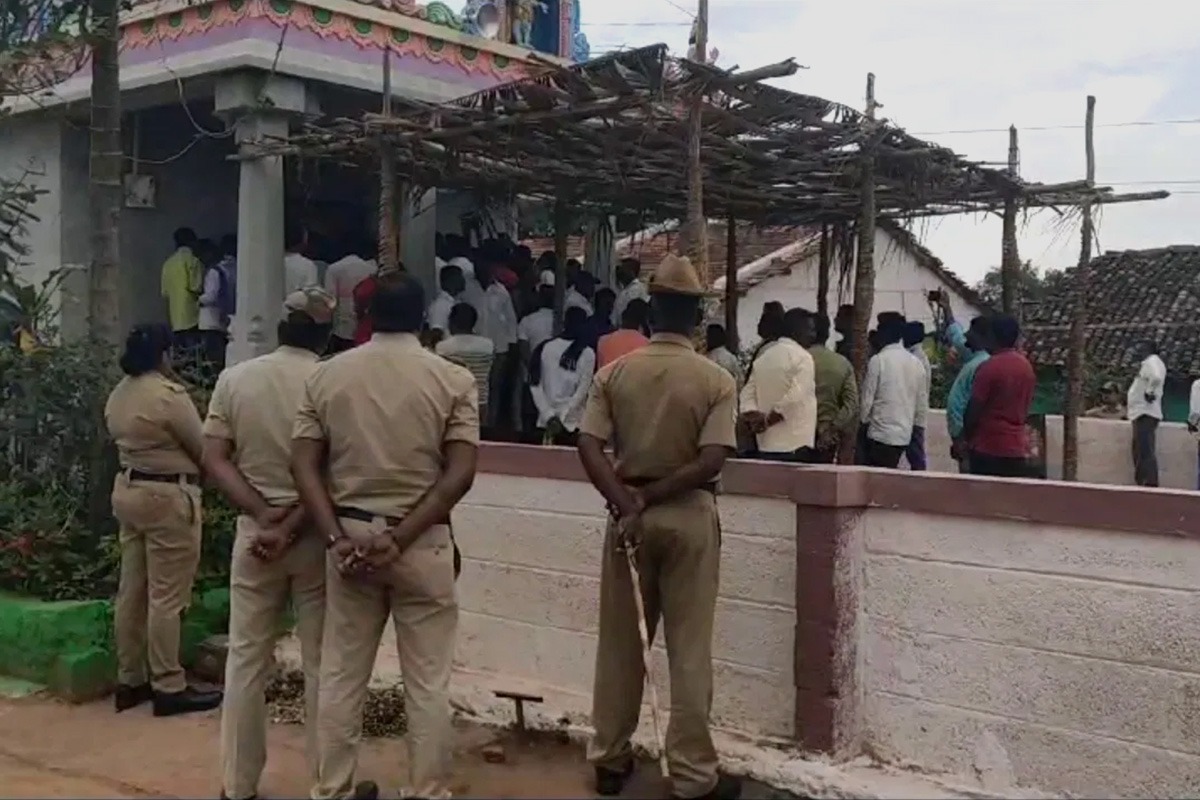In the heart of Gerumaradi, Karnataka, a recent incident has brought to light the deep-seated discrimination and superstitions faced by Dalits, exposing a harsh reality that challenges the principles of equality and fraternity. The assault on a Dalit backhoe driver during a demolition drive, triggered by a mere accident involving a cable wire, underscores the prevalence of age-old discriminatory practices against Scheduled Caste (SC) and Scheduled Tribe (ST) communities in some pockets of the state.
The historical context of temple entry for Dalits in India has witnessed significant strides in challenging discriminatory practices. Social reformers and freedom fighters like Mahatma Gandhi, B.R. Ambedkar, and E.V. Ramasamy played pivotal roles in challenging untouchability during the colonial era. Post-independence, constitutional provisions, including the abolishment of untouchability and anti-discrimination laws, aimed to eradicate such practices. The Supreme Court has consistently upheld the right of Dalits to enter temples as part of their fundamental right to equality and freedom of religion.
However, the ground reality remains starkly different, especially in rural areas where social and religious norms perpetuate the caste system. Incidents of Dalits being denied entry, harassed, assaulted, or even killed for attempting to enter temples persist. The upper castes, often in control of temple management, employ various tactics to enforce these discriminatory practices, leaving Dalits, who are economically vulnerable, with limited options.
Despite legislative measures such as the Protection of Civil Rights Act, of 1955, and the Scheduled Castes and Scheduled Tribes (Prevention of Atrocities) Act, of 1989, the state and central governments have fallen short in effectively addressing the issue of temple entry. Political considerations, reluctance, or indifference to intervene in sensitive matters, and a lack of will to prosecute offenders have hindered the enforcement of laws aimed at protecting Dalit rights.
A comprehensive policy to address discrimination against Dalits should encompass several key pillars. First and foremost, there is a critical need to strengthen existing legal frameworks, ensuring the rigorous enforcement of laws with strict penalties for offenders. Dismantling structures that perpetuate discrimination is paramount in creating a more inclusive and just society. Additionally, public awareness campaigns play a crucial role in fostering understanding among all sections of society, particularly the upper castes, regarding the harmful consequences of caste discrimination. Promoting social harmony and integration should be highlighted as advantageous for the collective well-being of the community. Meaningful dialogue and reconciliation initiatives are essential, facilitating constructive conversations between Dalit and upper-caste communities.
This approach aims to bridge divides, promote understanding, and ensure active Dalit participation in temple management. Lastly, comprehensive support for Dalit empowerment, spanning education, employment, health, and social security, is imperative. By empowering Dalit communities, the policy seeks to enable them to assert their rights and freedoms, fostering a more equitable and just society.
The discrimination against Dalits in Karnataka is not just a local issue; it is a challenge to India’s democracy, secularism, and national unity. It requires collective efforts from the government, political parties, civil society, media, religious leaders, and the public to create an environment where discrimination has no place. Karnataka must lead the way in dismantling discriminatory practices, setting an example for the entire country. It is time to put an end to the age-old superstitions that cast a dark shadow on the ideals of equality and fraternity. The call for change must be answered, and it must be answered now.

